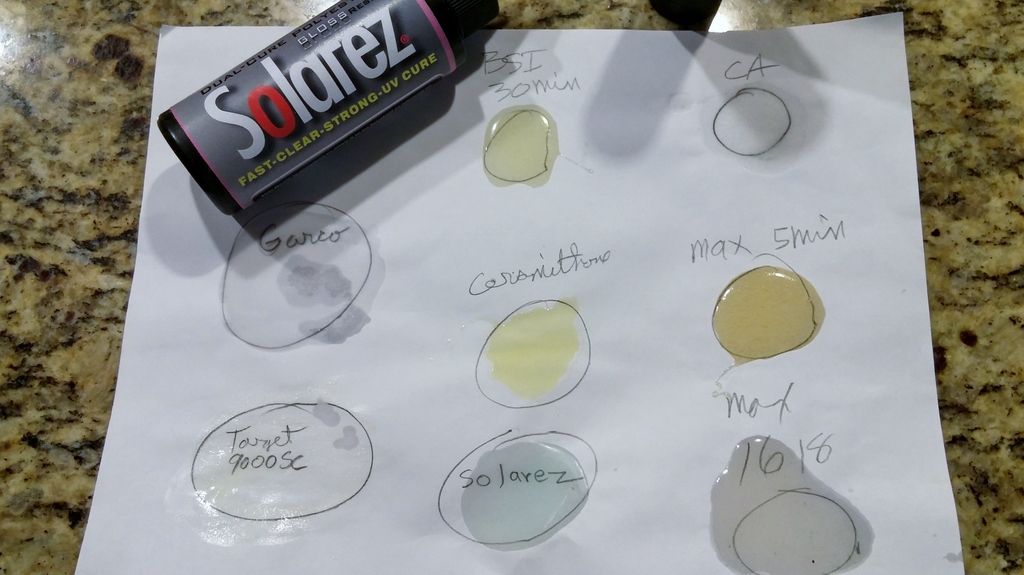It is not epoxy and it does not yellow...
And how much time will a cue spend in direct sun light??
Kim
Okay, not an epoxy. That's what I called it when I had an email exchange with Gary Fisher, the creator of Solarez, and he didn't bother to correct me. The reason I asked is because I've seen cues that have yellowed BADLY. There have also been reports of his resins yellowing badly, albeit surfboards..
NOW, as far as direct sunlight...very little. However, I know of several pool halls that have windows and until dark it is the primary source of light. My shop also has a window that lets light in...
None of this matters if you final coat with paint but then that kind of defeats some of the purpose...?
Here is the email...verbatim
ALmost any resin yellows over time (>5 yrs) if exposed to sunlight (UV light)
Our polyester Gloss is particularly good at remaining clear.
An aliphatic urethane is better, maybe 7 years and silicone better yet, maybe 10 years
